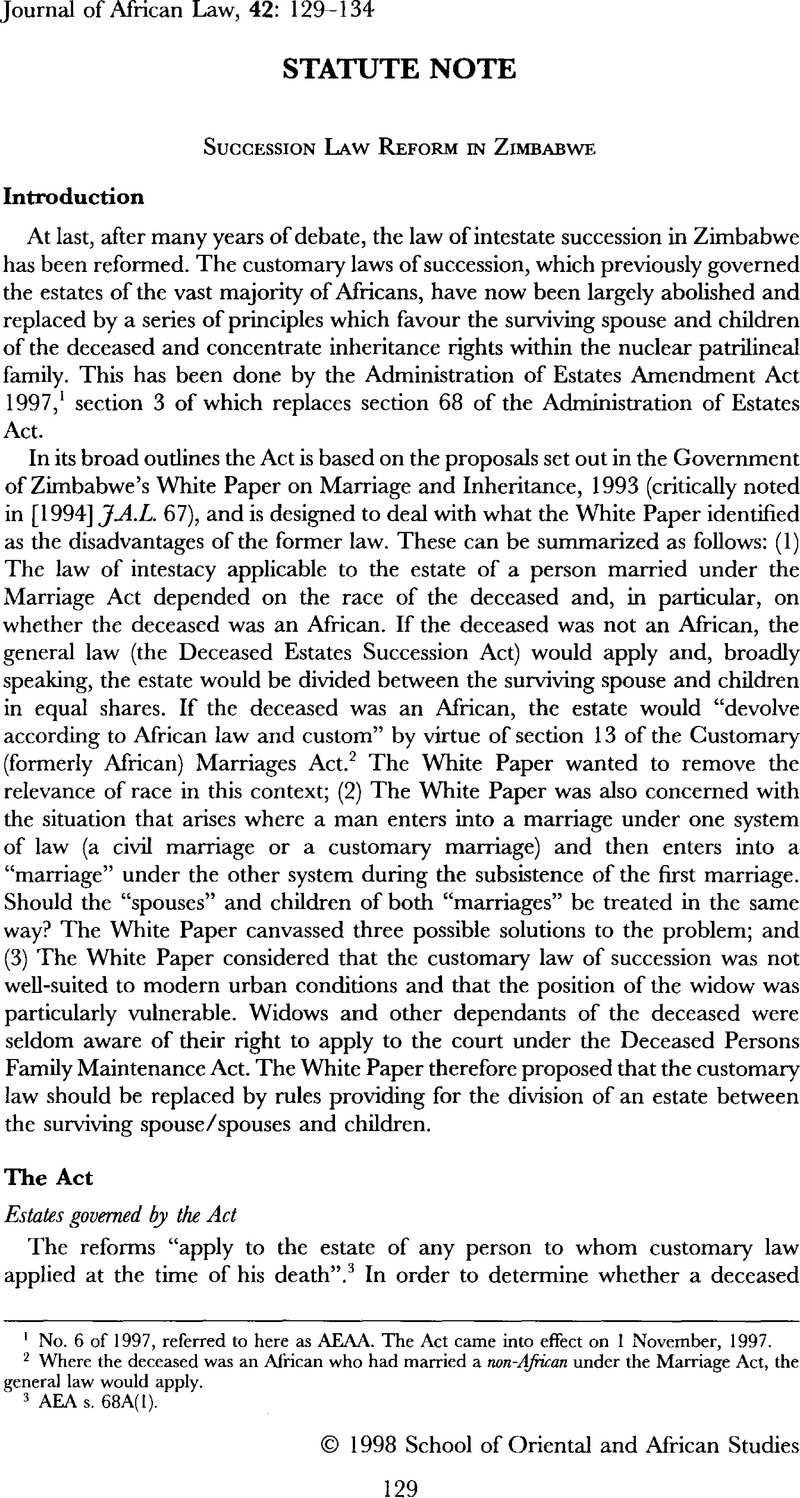Published online by Cambridge University Press: 28 July 2009

1 No. 6 of 1997, referred to here as AEAA. The Act came into effect on 1 November, 1997.
2 Where the deceased was an African who had married a non-African under the Marriage Act, the general law would apply.
3 AEA s. 68A(1).
4 The choice of law principles will be particularly important where the deceased was unmarried.
5 AEA s. 68G(1). An unregistered customary union is regarded as a valid customary marriage for the purposes of the new section 68. AEA s. 68(3).
6 Ibid.
7 Where the deceased was not married at the time of his death, the choice of law criteria set out in s. 3 of the Customary Law and Local Courts Act will presumably determine which law applies to his estate.
8 AEAA s. 7. In Mujawo v. Chopugudza, SC 142/92 the Supreme Court had ruled that s. 13 had been repealed by implication by the Legal Age of Majority Act as read with the Customary Law and Primary Courts Act. This controversial decision was followed with obvious reluctance by the High Court in Masubey v. The Master and Another, where the court expressed its support for the dictum of Gubbay, C.J., Jenah v. Nyemba, SC 49/86 that no such repeal had occurred.
9 AEA s. 68(3).
10 AEAA s. 9 amends the definition of “dependant” in s. 2 to include a person who “(i) was being maintained by the deceased at the time of his death; or (ii) was entitled to the payment of maintenance at the time of his death”. This important amendment is designed primarily to enable the “widows” of void customary marriages to apply for maintenance from their deceased “husband's” estate.
11 AEA s. 68(4).
12 AEA s. 68H.
11 AEA s. 68B.
14 AEA s. 68D(1).
15 AEA s. 68D(2). S. 68(1) defines “beneficiary” to mean spouse or child, or, in the absence of any spouse or child surviving the deceased, any person entitled to inherit under the Act. “Family” means the persons recognized under customary law as constituting die deceased person's family.
16 AEA s. 68E.
17 The enumeration of the principles adopted in this note is the author's.